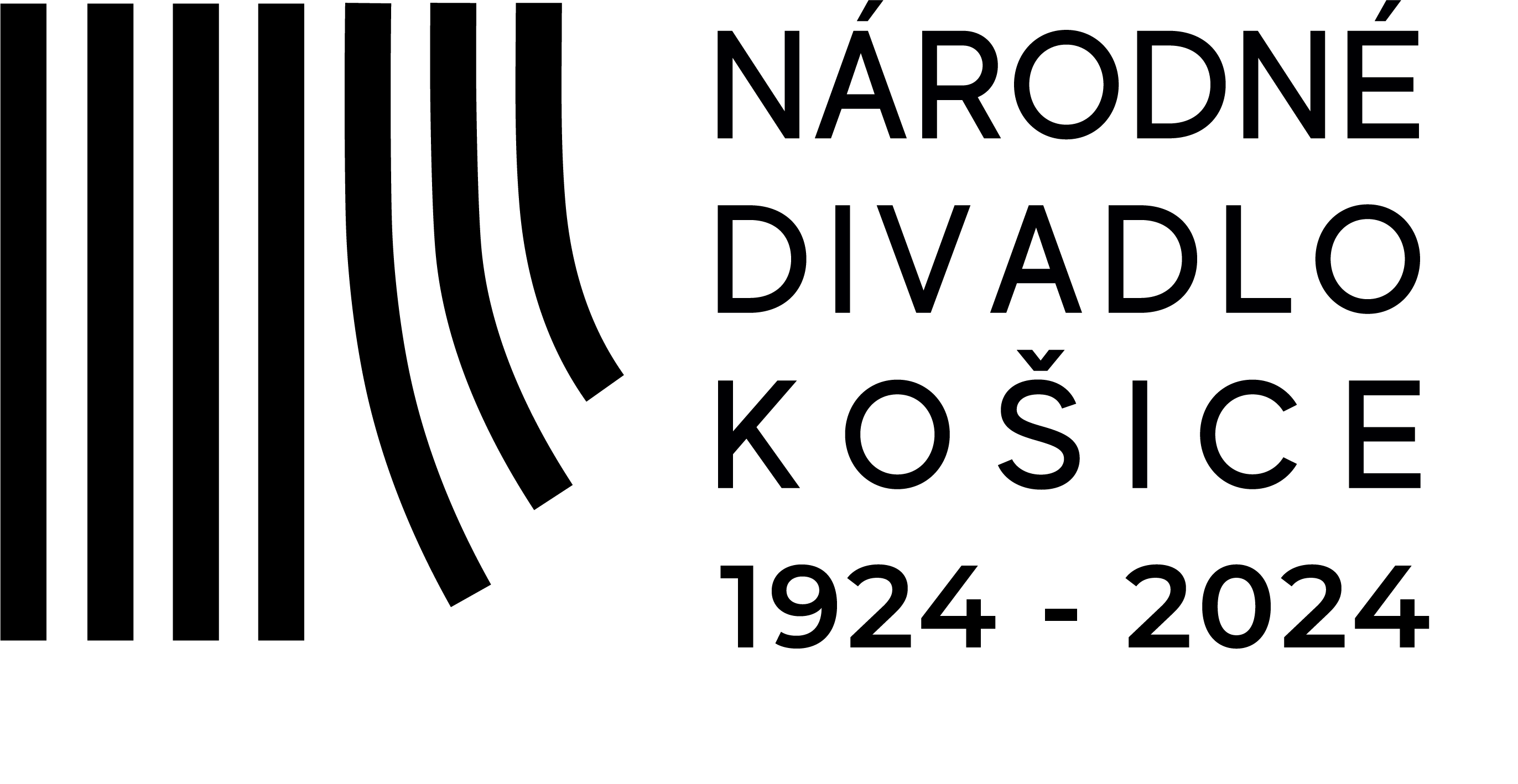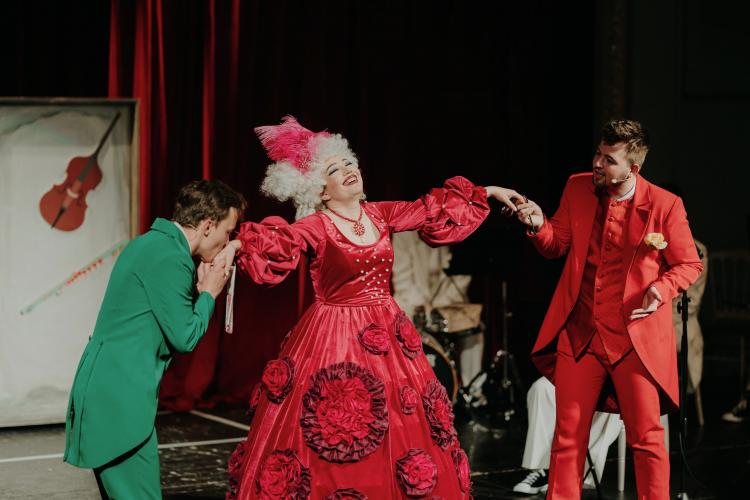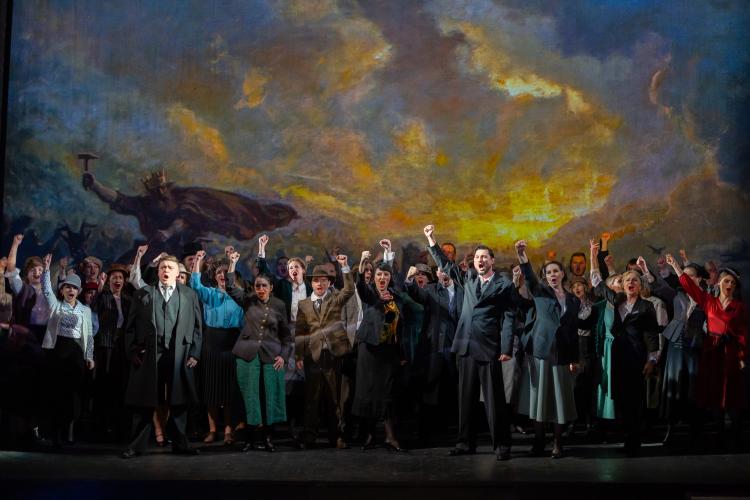Richard Wagner: TRISTAN AND ISOLDE
Scenes from opera
Tristan and Isolde is Richard Wagner’s masterpiece. The opera is considered the paramount work all the opera houses around the world wish to do. The Opera Ensemble of ŠDKE led by the chief conductor Peter Valentovič presents scenes from the opera.
“It was the same time as I was experiencing the peak or near peak of my intense passion for the art work of Richard Wagner. I said passion, as more simpler words such as love and enthusiasm wouldn’t faithfully describe this relationship. Those years of your deepest devotion are often the years of increased excitability, which was in my case to a certain point emphasised by critical reading. And devotion combined with deep understanding, that’s intense passion. The most hard-won and prolific experience of my early years was that passion is clear-sighted, otherwise it is not worthy of its name. Blind love, nothing but ceremonial, praising love – it is beautiful simplification.”
"Why this work, in my most personal view overcrowded with these props, should mesmerize all mankind and save the world? Only gods know that. It is ever-present in Wagner’s boasting, in his permanent self-blessing, constant soliloquy, in his need to comment on everything, in unspeakable immodesty which is the foreshadow of Hitler. Naturally, in Wagner’s work we see Hitler a lot – sure, you omitted that, you had to omit that – the work to which you serve, how could you link it to Hitler! It was linked to him for quite a long time.” Thomas Mann on Richard Wagner
Wagner’s work Tristan and Isolde influenced both the 19th century musicians and music development in the 20th century. Many books and publications were written on this opera, the Tristan chord, in the second measure of overture, has been studied by musicologists.
Wagner also strongly influenced his contemporaries and successors in other arts – we see German writer Thomas Mann in the first place, a Nobel Prize Laureate of 1929. He was strongly affected by both Wagner’s music and his philosophy at the same time. His relationship to the famous composer varied from youthful zeal to scepticism in later years. Nevertheless, he kept loving his narcotic music in his old age.
Reading Thomas Mann’s and his son Klaus Mann’s work while simultaneously listening to Wagner’s music from Tristan and Isolde uncovers the impact of the work on near and future generations and extremely complicated relationship between the father and son - Klaus who was, just like his father, writer, a representative of the new generation and rebel who ended his life by suicide in 1949.
R. Wagner: Tristan and Isolde
- Overture
- Young mariner’s singing 'Westwärts schweift der Blick'
- Isolde’s monologue from Act I. 'Wie lachend sie mir Liedersingen'
- Interlude to Scene 5, Act I.
- Love duet from Act II. 'O sink hernieder, Nacht der Liebe'
- King Marke’s monologue from Act II. 'Tatest du's wirklich'
- The end of Act II. 'O König, das kann ich dir nicht sagen'
- Overture to Act III.
- Shepard’s singing, English horn solo
- Isolde’s Love Death „Mild und leise wie er lächelt“
The texts from the works and letters by Thomas and Klaus Mann:
- Schopenhauer, Wagner, Nietzsche (Thomas Mann: Betrachtungen eines Unpolitischen)
- On Richard Wagner’s Art (Thomas Mann: Über die Kunst Richard Wagners)
- Thomas Mann’s letter to German writer Carl Maria Weber of 4 July 1920
- Wagner without ending, letter to Emil Preetorius of 1949 (Thomas Mann: Wagner und kein Ende)
- Death in Venice (Thomas Mann: Der Tod in Venedig)
- Friedrich Hölderlin: poem Sokrates and Alkibiades
- Ricki Hallgarten – radicalism of heart (Klaus Mann: Ricki Hallgarten – Radikalismus des Herzens, essay)
| Conductor: | Peter Valentovič |
| Directed by: | Anton Korenči |
| Dramaturgy | Stanislav Trnovský |
| Light design: | Róbert Farkaš |
| Translation of texts: | Linda Fintorová, Stanislav Trnovský |
| Translation of the libretto: | Stanislav Trnovský |
| Izolda: | Eliška Weissová |
| Tristan: | Titusz Tóbisz |
| Marke: | Michal Onufer |
| Brangäne: | Myroslava Havryliuk |
| Kurwenal: | Martin Kovács |
| Melot: | László Havasi |
| The voice of a young sailor: | Maksym Kutsenko |
| Thomas Mann: | Róbert Šudík |
| Klaus Mann: | Matej Marušin |
Press news
- 10. júna 2022 - Tristan a Izolda – výnimočná opera Richarda Wagnera v koncertnom predvedení na javisku Štátneho divadla Košice
NAPÍSALI O PREDSTAVENÍ
- 22.5.2023 - operaslovakia.sk - Richard Wagner na Slovensku. K výročiu narodenia skladateľa
- 27.6.2022 - operaslovakia.sk - Wagnerov Tristan a Izolda vo veľkom priereze v Košiciach – historický okamih opery na Slovensku (recenzia)
- 23.6.2022 - mojakultura.sk - Oslava Richarda Wagnera v Košiciach
- 17.6.2022 - mojakultura.sk - Titusz Tóbisz: Tristan a Izolda je hudobná meditácia, ktorá sa rozplýva v celom univerze
- 17.6.2022 - indexmag.sk - Sólisti Eliška Weissová a Titusz Tóbisz o Tristanovi a Izolde
- 13.6.2022 - cassovia.sk - Tristan a Izolda – výnimočná opera v ŠD
- 11.6.2022 - mojakultura.sk - Tristan a Izolda v koncertnom predvedení na javisku Štátneho divadla Košice
- 10.6.2022 - korzar.sme.sk (SITA) - Štátne divadlo predstaví v premiére operu Richarda Wagnera Tristan a Izolda




















